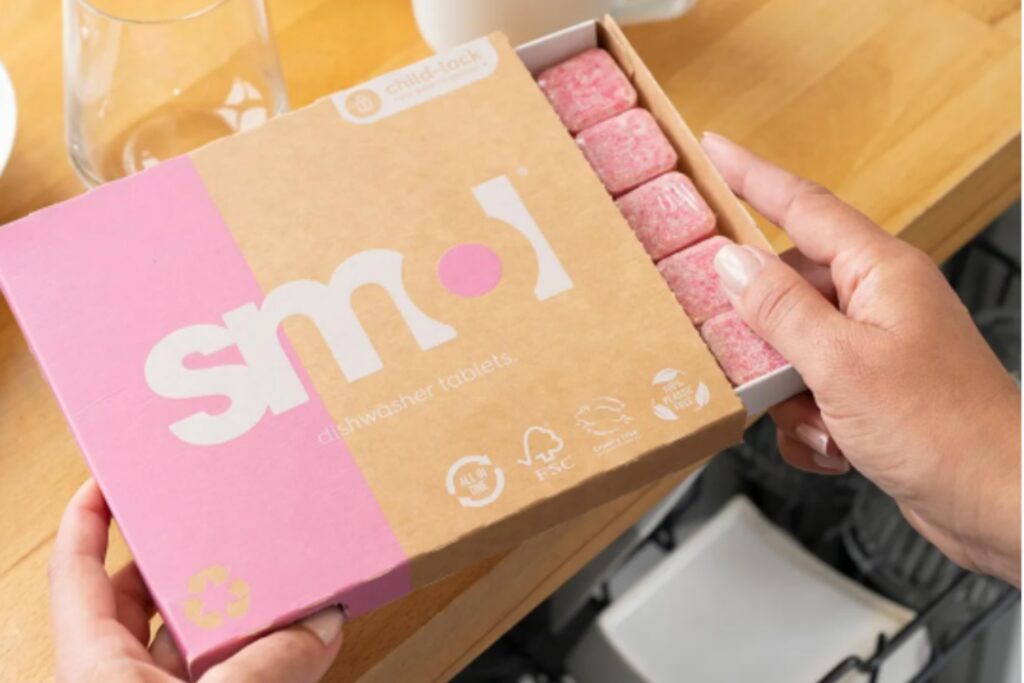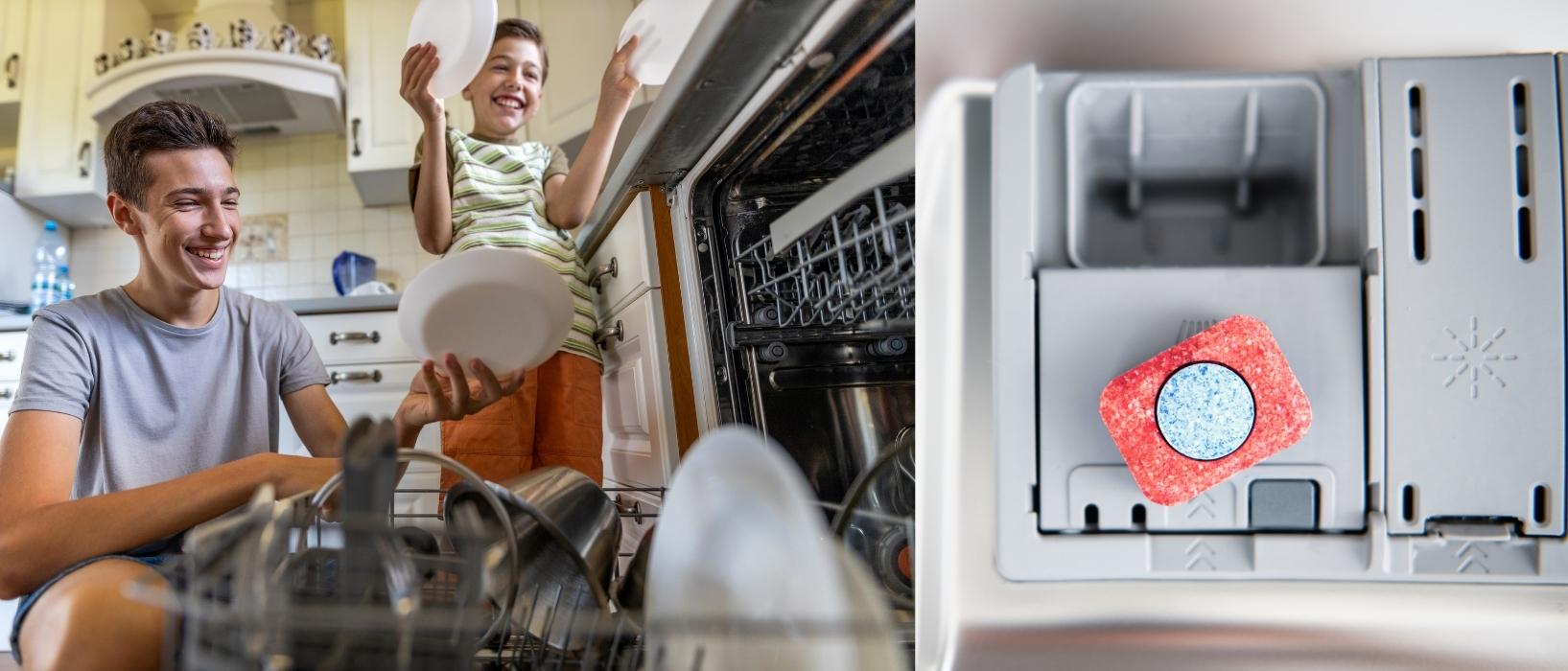When people decide to make their kitchens more eco-friendly, they often first think of buying beeswax wrap, silicone sponges, and glass jars.
Of course, all of these things will help lower your carbon footprint, but alone they are not enough. You have to change your behaviours too, including how you wash your dishes.
A seemingly straightforward chore, there are actually a whole bunch of different factors that go into its impact on the environment. First and foremost, the amount of water being used.
Given the worsening shortage of fresh water on the planet, this issue really takes priority.
Most modern dishwashers will use around 11 to 13 litres of water per cycle. Hand-washing, you might be shocked to find out, can use anywhere up to nine times that amount.
If you don’t have a dishwasher and have to wash by hand, don’t worry, there are still plenty of ways to bring the amount of water you’re using down. This includes using a tub in the sink, only filling it halfway, and soaking (rather than rinsing) stubborn pots and pans.
Be Part of the Climate Solution
Just like washing by hand can be made more efficient, there are plenty of ways to make using a dishwasher the less sustainable option.
The most common? Pre-rinsing dishes.
In fact, a UK household can waste up to 6,000 gallons every year just by rinsing their dishes before putting them in the dishwasher. Instead, skip the pre-wash altogether and simply scrape any bits of food you have into the bin (or better, compost) first.
Another all-too-common mistake people make is putting their dishwasher on before it’s completely full. Waiting can not only save water, but money too as you’ll have to run it less often.
It’s also worth using the ‘eco’ cycle if your dishwasher at home has that option. Despite being longer, it can actually save up to 20% on electricity and water.
Speaking of electricity, you may be thinking that even though it uses more water, dishwashers have to be less energy-efficient. Usually, however, that isn’t the case. Modern dishwashers will actually use less energy than it takes to run the tap for several minutes.
The last thing to consider is your cleaning supplies.
If you’re washing by hand, a solid soap bar with natural ingredients is the best way to go (you can check some out by visiting weekly tip 28). Machine detergent, on the other hand, often contains harsh chemicals that can harm the environment, not to mention they come wrapped in plastic.
That’s where Smol comes in.

Smol believes, as we do at Play it Green, that each of us, every person, every customer, every action, no matter how small, can contribute towards a better world.
They are committed to making sustainable cleaning the effortless, more convenient choice. Since their launch in 2018, customers switching to them have already saved over 300 tonnes of plastic and more than 1000 tonnes of chemicals.
Smol’s dishwasher tablets come in 100% plastic-free packaging (a world-first when they launched!) but what makes them even more sustainable is their size.
As their name may suggest, the dishwasher tablets are smaller than average, meaning less packaging and more space saved during transportation. The super-concentrated products have even been formulated with lower levels of added chemicals per wash.
Not including the energy spent running the washer, each Smol capsule generate 35% less carbon than the average detergent, not to mention you can get it delivered straight through your letterbox.
Apart from their environmental impact, Smol also knows that sustainability is about supporting people too.
They donate a pack of laundry capsules to The Hygiene Bank each time a customer returns four fabric conditioner and/or hand sanitiser bottles for reuse. They also donate products to those in need of clean clothes, including projects with primary schools and homeless organisations.
The best news? You can get a free trial of any Smol product – including their dishwasher tablets! You can shop Smol here.
Reach Net Zero
Find out how Play it Green can help your business reach its sustainability goals











